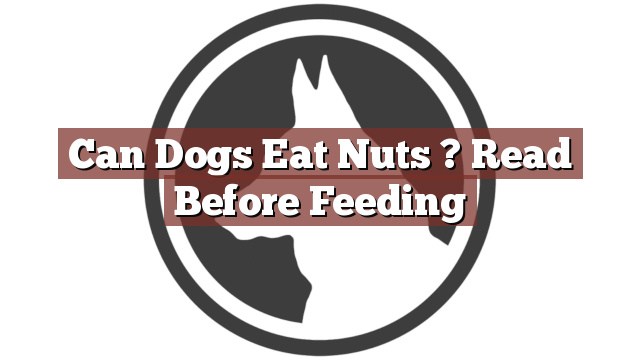Understanding Your Dog’s Dietary Needs
As responsible pet owners, it is essential to understand our dog’s dietary needs to ensure their health and well-being. While dogs are primarily carnivorous, they can also benefit from certain fruits, vegetables, and grains in moderation. However, it is important to research and be cautious about what we feed our furry friends, as some human foods can be harmful to them. One common question that arises is, can dogs eat nuts?
Can Dogs Eat Nuts? Read Before Feeding
Can dogs eat nuts? This is a question that puzzles many pet owners. While nuts are a popular snack for humans, it is important to note that not all nuts are safe for dogs. In fact, some nuts can be toxic and pose serious health risks to our canine companions. It is crucial to educate ourselves about the potential dangers before offering any nuts to our furry friends.
Pros and Cons of Feeding Nuts to Dogs
When considering feeding nuts to dogs, it is essential to weigh the pros and cons. On one hand, certain nuts can provide nutritional benefits. For example, almonds are high in protein and healthy fats, while peanuts contain essential vitamins and minerals. However, it is important to remember that dogs have different digestive systems than humans, and some nuts can cause digestive issues or even be toxic to them.
Some nuts, such as macadamia nuts, can be highly toxic to dogs. Consumption of macadamia nuts can lead to symptoms like weakness, vomiting, tremors, and even hyperthermia in canines. Additionally, nuts like walnuts and pecans can be difficult for dogs to digest due to their high-fat content, potentially causing gastrointestinal issues. Therefore, it is crucial to avoid feeding your dog any nuts that could be harmful.
Conclusion: Weighing the Risks and Benefits
In conclusion, while some nuts can be beneficial for humans, it is best to avoid feeding them to our canine companions. The risks associated with feeding nuts to dogs outweigh the potential benefits. If you suspect that your dog has ingested nuts or any other harmful food, it is important to seek immediate veterinary attention. A professional can provide the necessary guidance and treatment to ensure the health and well-being of your beloved pet.
Remember, a well-balanced and species-appropriate diet is crucial for your dog’s overall health. It is always advisable to consult with your veterinarian before introducing any new foods into your dog’s diet. By being mindful of their dietary needs and avoiding potentially harmful foods like nuts, we can keep our four-legged friends happy, healthy, and tail-waggingly grateful.
Thank you for taking the time to read through our exploration of [page_title]. As every dog lover knows, our furry friends have unique dietary needs and responses, often varying from one canine to another. This is why it's paramount to approach any changes in their diet with caution and knowledge.
Before introducing any new treats or making alterations to your dog's diet based on our insights, it's crucial to consult with a veterinarian about [page_title]. Their expertise ensures that the choices you make are well-suited to your particular pet's health and well-being.
Even seemingly harmless foods can sometimes lead to allergic reactions or digestive issues, which is why monitoring your dog after introducing any new food item is essential.
The content provided here on [page_title] is crafted with care, thorough research, and a genuine love for dogs. Nevertheless, it serves as a general guideline and should not be considered a substitute for professional veterinary advice.
Always prioritize the expert insights of your veterinarian, and remember that the health and happiness of your furry companion come first.
May your journey with your pet continue to be filled with joy, love, and safe culinary adventures. Happy reading, and even happier snacking for your canine friend!

